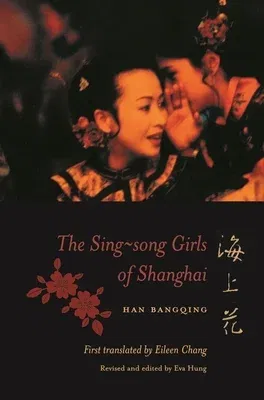Bangqing Han
(Author)The Sing-Song Girls of ShanghaiPaperback, 30 November 2007

Qty
1
Turbo
Ships in 2 - 3 days
In Stock
Free Delivery
Cash on Delivery
15 Days
Free Returns
Secure Checkout

Part of Series
Weatherhead Books on Asia
Print Length
592 pages
Language
English
Publisher
Columbia University Press
Date Published
30 Nov 2007
ISBN-10
0231122691
ISBN-13
9780231122696
Description
Product Details
Author:
Book Format:
Paperback
Country of Origin:
US
Date Published:
30 November 2007
Dimensions:
22.66 x
15.32 x
2.67 cm
ISBN-10:
0231122691
ISBN-13:
9780231122696
Language:
English
Location:
New York
Pages:
592
Publisher:
Series:
Weight:
762.03 gm